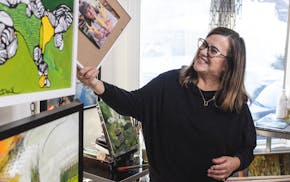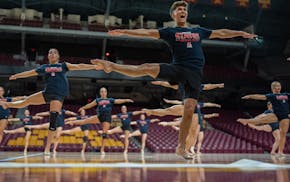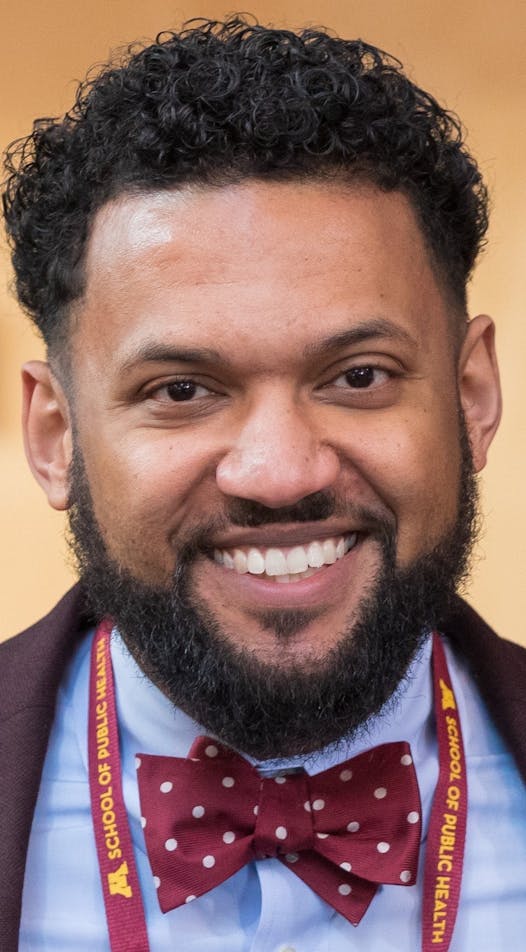You might remember staying up late to hunt all over the internet for a coveted COVID-19 vaccine slot last spring. Are you showing that same level of conviction for your child?
Kids ages 5 to 11 could be eligible to get shots of their own as soon as this week, and some parents who were all Beanie Babies over the vaccine when supply was limited earlier this year are not feeling the same kind of urgency when it comes to getting their young kids vaccinated.
This hesitancy is prevalent even among well educated parents who've otherwise demonstrated impeccable vaccine compliance for their children. These are folks who fastidiously rolled up their infants' pant legs to inoculate them from everything from pertussis to hepatitis B.
But with COVID, some parents struggle to see the rewards of vaccination.
"I think what's behind that is that we just generally have difficulty really quantifying risk for ourselves, and then risk for others," said Dr. Nathan Chomilo, a pediatrician at Park Nicollet and father of a 4-year-old.
In his practice, Chomilo helps skeptical families reframe the calculus as they confront the decision of whether to vaccinate their little ones against the disease. He assures them the shots are overwhelmingly safe and effective. Chomilo is also senior equity adviser to the commissioner of the Minnesota Department of Health and a board member of the state chapter of the American Academy of Pediatrics.
It's worth noting that 27% parents of 5- to 11-year-olds say they're eager to get their kids inoculated as soon as possible, according to a Kaiser Family Foundation study published last week. But 30% parents say they will "definitely not" get the vaccine for their kids, and a third of respondents said they'll wait to see how the vaccine is working.
Parents have questions. To answer some of yours, here are highlights from my conversation with Dr. Chomilo:
Given that most young children are not seriously sickened from a COVID-19 infection, how should parents weigh that in the equation?
"I think 'seriously sickened' is something that we have to be careful with," Chomilo said, "because it's been framed most often as in as 'they don't die.' And that's not entirely correct."
More than 580 kids in the United States have died of COVID-19 since the start of the pandemic, according to the latest figures from the American Academy of Pediatrics. And many others have experienced complications short of hospitalization and death.
While it's true that COVID-19 will present as a mild illness for most kids, "what we don't have as great understanding or insight into is which kids will have severe illness," he said. "About a third of kids who have been in the hospital don't have an underlying condition. We also don't know which kids are going to develop long-term effects from the infection of this virus, and that's probably the most concerning to me."
Some of the patients he's seen in his practice have complained of ongoing chest pain, shortness of breath, fatigue and trouble with focus — all in the aftermath of "mild" COVID-19 infections, he said.
Around the country, more than 5,000 kids have developed a rare complication known as multisystem inflammatory syndrome in children (MIS-C). About half were 5- to 13-year-olds, Chomilo said.
How concerned should parents be about the odds of their kids getting inflammation of the heart as a side effect from the vaccine?
Pericarditis (inflammation of the lining of the heart) and myocarditis (inflammation of the heart muscle) are conditions that have been seen very rarely after vaccination with the mRNA vaccines, Pfizer and Moderna, particularly among older teen boys and young adults. (Most were mild cases that patients recovered from quickly.) The rate of incidence declines in 12- to 15-year-olds, so Chomilo said the evidence suggests younger kids, who will receive much smaller doses of the vaccine, will be even less likely to experience it.
"If you are concerned about your child getting heart inflammation, they are actually much more likely to get it from getting COVID" than from a vaccine, he said.
Pfizer's studies of children 5 to 11 found no cases of myocarditis, though the studies weren't large enough to necessarily detect this incredibly rare side effect.
You have been an advocate for health equity. Do you expect to see racial disparities emerge in vaccination rates among kids as we did with adults?
"I do, because those patterns are based in structural racism of our health care system and in our society at large," Chomilo said.
When vaccines for adults were suddenly available several months ago, those with laptops and broadband internet had the edge as they stayed up until midnight and waited for appointment slots to open, Chomilo said. "But if you have three kids at home, you're a single parent, and you're working two jobs, that's not going to work for you."
Chomilo acknowledges to patients who are uncertain about the vaccine that medicine has historically violated the trust of Black and Indigenous communities, while pointing out that the vaccine's clinical trials have benefited from relatively diverse racial and ethnic representation among participants.
Should my child with a history of anaphylaxis, or life-threatening allergies, get the shots?
Chomilo recommends you talk to your primary provider. Generally speaking, if your child hasn't had a severe allergic reaction to vaccination, or any ingredient of the COVID-19 vaccines, then you should feel as safe with this vaccine as any other, he said.
I've been thinking of vaccination for my school-age son as a way to put COVID-19 behind my family. If we can achieve the same level of vaccination for kids who are 5 to 11 as we've seen in teens and adults (it's currently around 70% in Minnesota), what can we expect in terms of returning to normal in the next six to 12 months?
"I'm kind of on the same wavelength as you," Chomilo told me, adding that he is eager to get his 4-year-old vaccinated once his child is eligible in a few months. "I'm looking forward to this vaccination to help more families feel like they can get back to normal."
If young, school-age children are unvaccinated, that makes them a reservoir for disease, a place where the virus can replicate and spread to elders and others with compromised immune systems, Chomio said.
Anything can happen if new variants emerge across the globe. But Chomilo said he's hopeful that if vaccination takes off among young kids over the next several months, "the next year will look a lot different."
Yuen: How success has pushed Minnesotans off sidelines in trans athlete debate

Yuen: When cancer struck a second time, she found 'euphoria'

Yuen: The University of Minnesota's first male dance team member is turning heads by staying real
Yuen: How George Floyd's aunt healed her heart and lent her voice for justice




